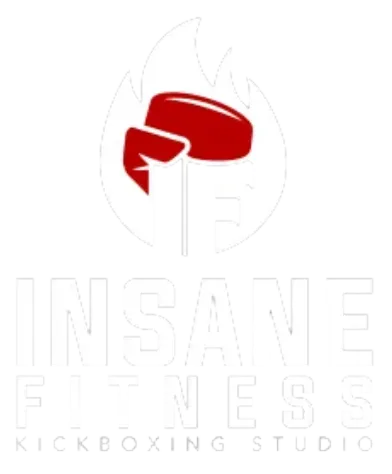Accountability Coach
Accountability Coach
About Us:
At Insane Fitness, we provide a dynamic and motivating environment where fitness enthusiasts can achieve their goals through kickboxing and functional training. Our mission is to empower individuals to improve their fitness levels while learning the art of kickboxing. We're seeking a dedicated and enthusiastic Accountability Coach to join our team and support our members in achieving their fitness goals.
Quick disclaimers: Stop reading if you do not like hard work or going above and beyond. Stop reading if you don’t like to sell or don’t like working out. This is not the job where you will build the habit of working out; you should already have it. Stop reading if you are not willing to live and breathe fitness from a holistic perspective.
Position Summary :
As an accountability coach for a weight-loss kickboxing gym, your role is pivotal in helping clients stay on track with their fitness goals and weight-loss journeys. Here's a breakdown of what you can focus on in that role:

1. Setting Clear Goals:
Help clients define specific, measurable, achievable, relevant, and time-bound (SMART) goals.
Work with clients to create short-term and long-term goals that align with their fitness and weight-loss objectives.
2. Tracking Progress:
Set up a system to regularly track and document clients’ progress, such as weekly weigh-ins, body measurements, or fitness assessments.
Use fitness apps or tools to monitor their activities, such as calories burned during workouts or progress in kickboxing techniques.
3. Motivation & Encouragement:
Provide consistent motivation to keep clients on track, especially during challenging times.
Celebrate small victories and progress, whether it’s losing a few pounds, mastering a new kickboxing move, or attending a certain number of classes.
4. Weekly Check-ins:
Conduct weekly or bi-weekly check-ins to discuss progress, challenges, and any potential roadblocks.
Offer guidance on improving techniques, nutrition, and overall fitness habits.
Be a source of accountability by making clients feel responsible for sticking to their workout plans.
5. Creating a Supportive Community:
Foster a positive and supportive environment where clients feel comfortable sharing their struggles and successes.
Organize group activities or virtual check-ins to create a sense of community and camaraderie among participants.
6. Providing Guidance on Nutrition:
Offer basic nutritional advice aligned with weight loss goals, such as healthy meal planning or snack choices.
Work with clients to identify and overcome any food-related obstacles that may be hindering their progress.
7. Adjusting the Plan:
Regularly evaluate clients' progress and adjust their workout or nutrition plan as needed.
If a client hits a plateau, consider modifying their training routine to keep them engaged and moving toward their goals.
8. Accountability Tools:
Use tools like fitness apps, journaling, or social media check-ins where clients can post their progress and be held accountable by the gym community.
Implement "buddy systems," where clients pair up to hold each other accountable outside of scheduled classes.
9. Focus on Mental Health:
Encourage a growth mindset and emphasize the importance of mental resilience in achieving fitness goals.
Offer stress-relief tips, motivational quotes, or mindfulness exercises, especially if clients struggle with setbacks.
10. Provide Feedback and Advice:
Offer constructive feedback on form, technique, and any personal habits that can be improved.
Always celebrate effort and growth, not just outcomes
Being an accountability coach means balancing empathy, guidance, and structure. You're there to inspire and support clients as they embark on a transformative journey, so always make sure they feel heard and empowered to succeed!
Do you have any specific tools or strategies in mind that you'd like to implement as an accountability coach in the gym?
Please answer this question and include your response in your cover letter.
About Us:
At Insane Fitness, we provide a dynamic and motivating environment where fitness enthusiasts can achieve their goals through kickboxing and functional training. Our mission is to empower individuals to improve their fitness levels while learning the art of kickboxing. We're seeking a dedicated and enthusiastic Accountability Coach to join our team and support our members in achieving their fitness goals.
Quick disclaimers: Stop reading if you do not like hard work or going above and beyond. Stop reading if you don’t like to sell or don’t like working out. This is not the job where you will build the habit of working out; you should already have it. Stop reading if you are not willing to live and breathe fitness from a holistic perspective.
Position Summary :
As an accountability coach for a weight-loss kickboxing gym, your role is pivotal in helping clients stay on track with their fitness goals and weight-loss journeys. Here's a breakdown of what you can focus on in that role:

1. Setting Clear Goals:
Help clients define specific, measurable, achievable, relevant, and time-bound (SMART) goals.
Work with clients to create short-term and long-term goals that align with their fitness and weight-loss objectives.
2. Tracking Progress:
Set up a system to regularly track and document clients’ progress, such as weekly weigh-ins, body measurements, or fitness assessments.
Use fitness apps or tools to monitor their activities, such as calories burned during workouts or progress in kickboxing techniques.
3. Motivation & Encouragement:
Provide consistent motivation to keep clients on track, especially during challenging times.
Celebrate small victories and progress, whether it’s losing a few pounds, mastering a new kickboxing move, or attending a certain number of classes.
4. Weekly Check-ins:
Conduct weekly or bi-weekly check-ins to discuss progress, challenges, and any potential roadblocks.
Offer guidance on improving techniques, nutrition, and overall fitness habits.
Be a source of accountability by making clients feel responsible for sticking to their workout plans.
5. Creating a Supportive Community:
Foster a positive and supportive environment where clients feel comfortable sharing their struggles and successes.
Organize group activities or virtual check-ins to create a sense of community and camaraderie among participants.
6. Providing Guidance on Nutrition:
Offer basic nutritional advice aligned with weight loss goals, such as healthy meal planning or snack choices.
Work with clients to identify and overcome any food-related obstacles that may be hindering their progress.
7. Adjusting the Plan:
Regularly evaluate clients' progress and adjust their workout or nutrition plan as needed.
If a client hits a plateau, consider modifying their training routine to keep them engaged and moving toward their goals.
8. Accountability Tools:
Use tools like fitness apps, journaling, or social media check-ins where clients can post their progress and be held accountable by the gym community.
Implement "buddy systems," where clients pair up to hold each other accountable outside of scheduled classes.
9. Focus on Mental Health:
Encourage a growth mindset and emphasize the importance of mental resilience in achieving fitness goals.
Offer stress-relief tips, motivational quotes, or mindfulness exercises, especially if clients struggle with setbacks.
10. Provide Feedback and Advice:
Offer constructive feedback on form, technique, and any personal habits that can be improved.
Always celebrate effort and growth, not just outcomes
Being an accountability coach means balancing empathy, guidance, and structure. You're there to inspire and support clients as they embark on a transformative journey, so always make sure they feel heard and empowered to succeed!
Do you have any specific tools or strategies in mind that you'd like to implement as an accountability coach in the gym?
Please answer this question and include your response in your cover letter.
